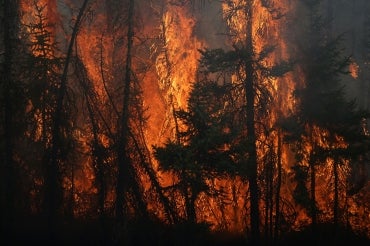Canada must adapt to changing world with more wildfires: U of T expert in Globe and Mail

Published: August 10, 2018
This summer, the world has seen devastating wildfires in B.C. and California. Greece was hit with what's been described as the worst wildfire in its history, killing over 70 people.
“Wildfire activity and impacts are increasing around much of the world,” writes Mike Wotton of the University of Toronto's Faculty of Forestry and Mike Flannigan, a professor in the department of renewable resources at the University of Alberta, in the Globe and Mail.
“And, it will only get worse,” they write. “The effort we put into adapting to this changed world will influence how easily we co-exist with fire.”
Changing weather patterns – leading to hotter, drier and windy conditions – as well as the presence of more people on the planet has made wildfires more frequent, the experts say.
Fire-management agencies may have to change their approach and let low-risk fires “burn unsuppressed, freeing up resources to respond to more imminent threats and letting fire play its natural role,” they add.
As wildfires become the norm, provincial and federal governments will have to invest in wildfire management and research to reduce the risk of catastrophe, Wotton and Flannigan say.
“We hope the catalyst for action is not multiple fatalities from wildfires as it was in the past century.”
Read the full op-ed in the Globe and Mail



